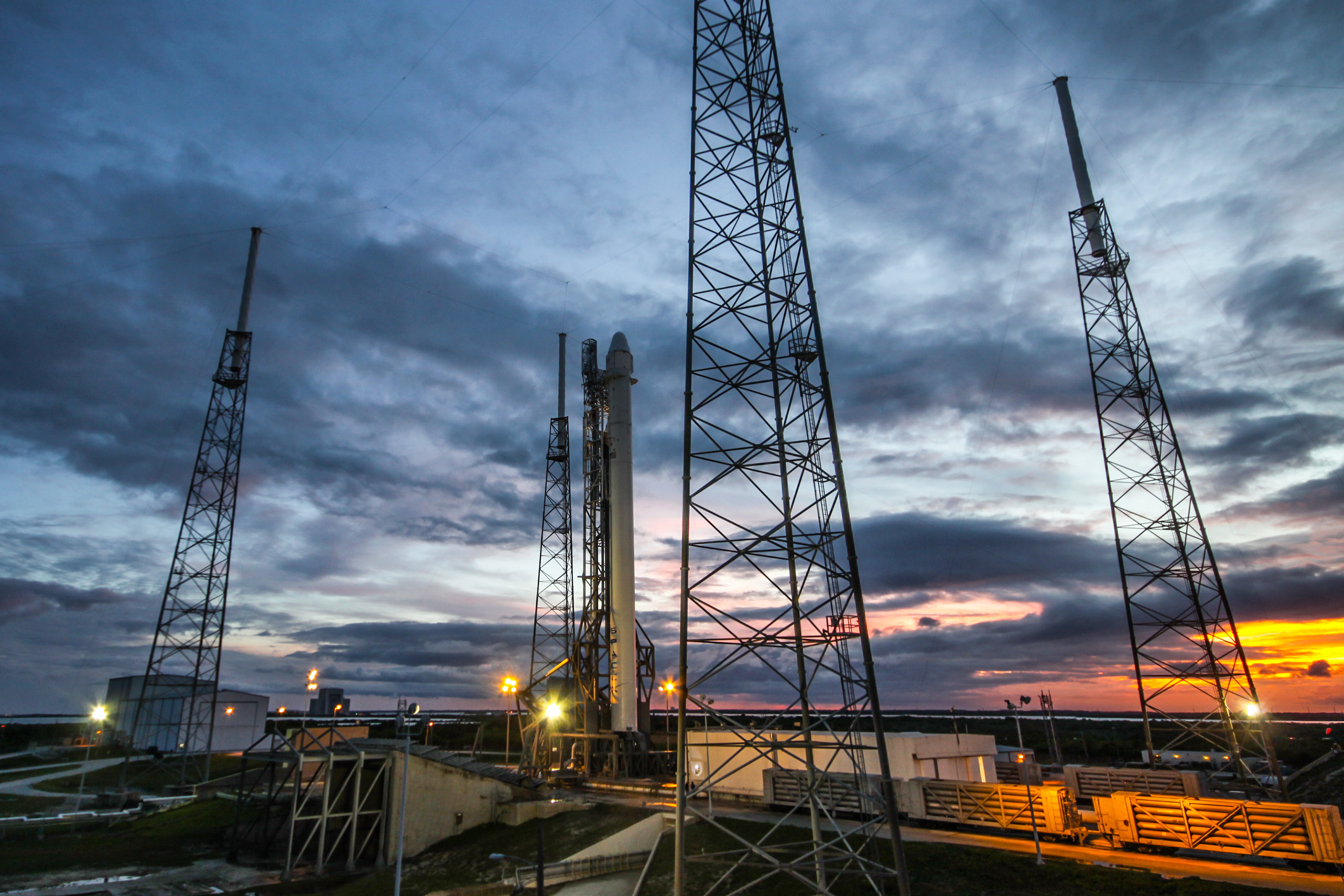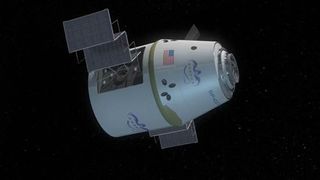SpaceX's Next Launch to Space Station Delayed Until New Year

The private spaceflight company SpaceX won't be flying its next delivery mission to the International Space Station until early 2015.
SpaceX was originally expected to launch its Falcon 9 rocket carrying an uncrewed Dragon cargo ship to the station for NASA today (Dec. 19), but the launch was delayed partly due to a problem with the rocket. SpaceX is now expected to launch its fifth official mission to the orbiting outpost under a contract with NASA on Jan. 6.
The Falcon 9 rocket poised to launch this week failed to finish a "static fire" test Tuesday (Dec. 16), a procedure where the rocket is secured to the ground and its engines are turned on for a few moments to test their performance. The company has not released any statements on what happened during the test, but CEO Elon Musk said more work is needed to get the rocket ready for launch. [The Spacecraft and Rockets of SpaceX: Photos]
"Falcon/Dragon launch punted to early Jan," Musk wrote on Twitter today. "Need time to review all systems thoroughly again."
The launch needs to be delayed several weeks not only due to the technical problem, but also because the sun will be at an unfavorable “beta-angle” for dockings to the space station. During this time, it's difficult to send spacecraft to the station because of heating and power concerns.
The new launch time "will provide SpaceX engineers time to investigate further some of the issues that arose from the static fire test of the Falcon 9 rocket on Dec. 16 and will avoid beta angle constraints for berthing the Dragon cargo ship to the station that exist through the end of the year," NASA officials wrote in a statement.
Should the launch go off as planned, SpaceX also hopes to land a stage of the rocket on a floating platform in the Atlantic Ocean. The company is hoping the unprecedented test will pioneer the use of reusable rockets to cut down on fuelling and launch costs in future missions.
Get the Space.com Newsletter
Breaking space news, the latest updates on rocket launches, skywatching events and more!

"A fully and rapidly reusable rocket — which has never been done before — is the pivotal breakthrough needed to substantially reduce the cost of space access," SpaceX representatives said in a statement. "While most rockets are designed to burn up on reentry, SpaceX is building rockets that not only withstand reentry, but also land safely on Earth to be refueled and fly again."
The company has pledged to do a dozen launches in the next year, which will include several "testing opportunities" for this technology.
Follow Elizabeth Howell @howellspace.Follow us @Spacedotcom, Facebookand Google+. Original article on Space.com.
Join our Space Forums to keep talking space on the latest missions, night sky and more! And if you have a news tip, correction or comment, let us know at: community@space.com.

Elizabeth Howell (she/her), Ph.D., was a staff writer in the spaceflight channel between 2022 and 2024 specializing in Canadian space news. She was contributing writer for Space.com for 10 years from 2012 to 2024. Elizabeth's reporting includes multiple exclusives with the White House, leading world coverage about a lost-and-found space tomato on the International Space Station, witnessing five human spaceflight launches on two continents, flying parabolic, working inside a spacesuit, and participating in a simulated Mars mission. Her latest book, "Why Am I Taller?" (ECW Press, 2022) is co-written with astronaut Dave Williams.